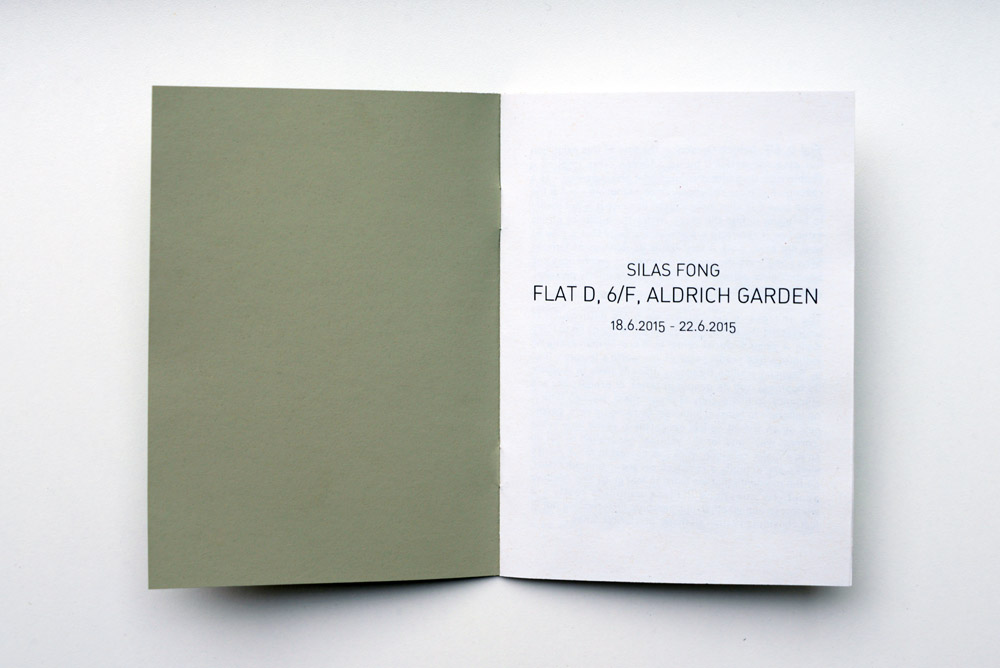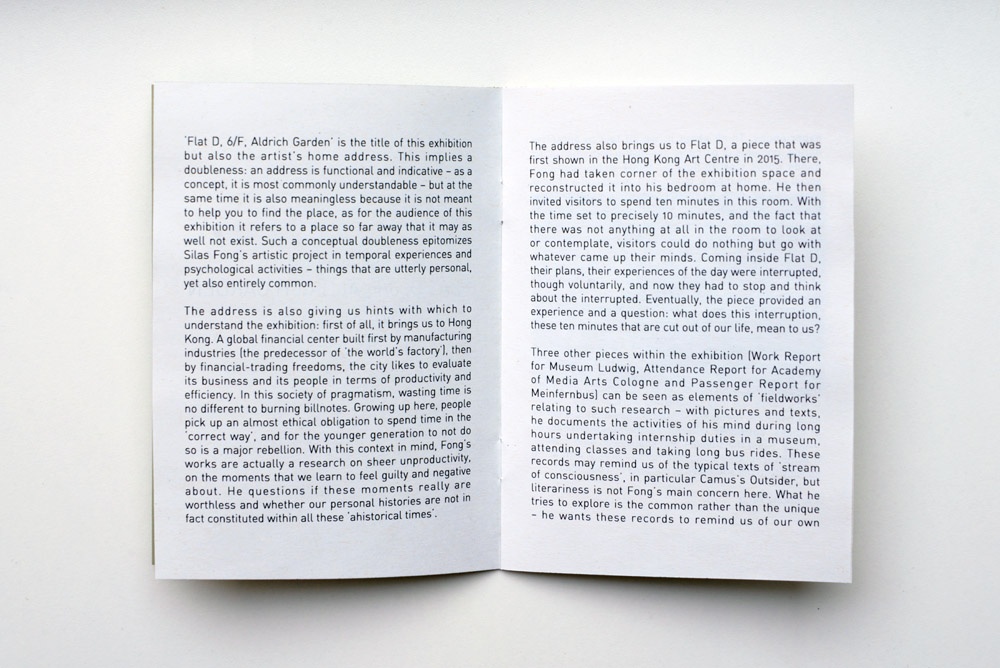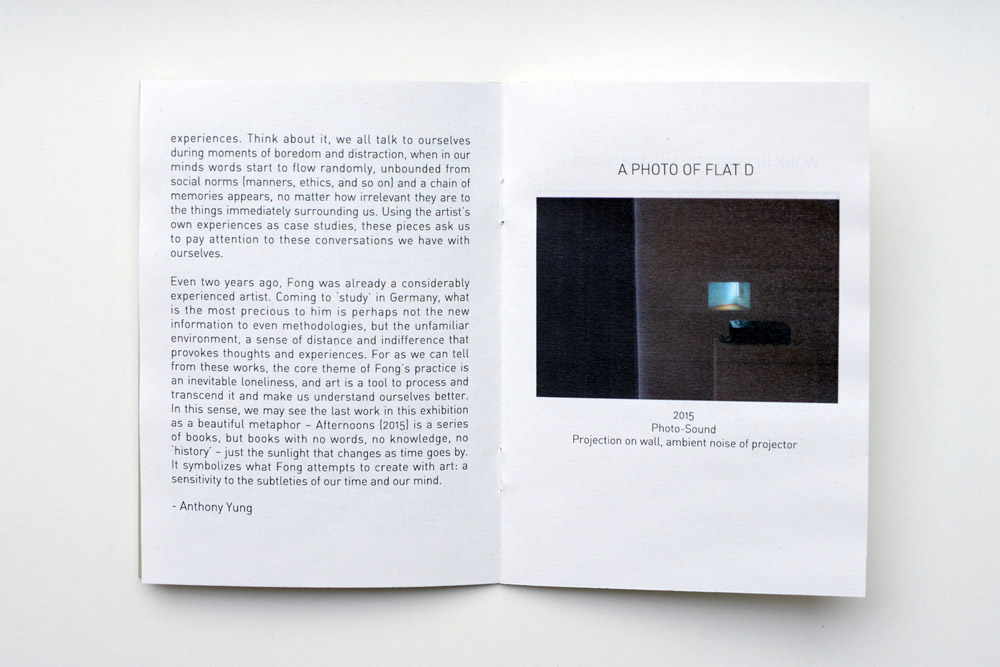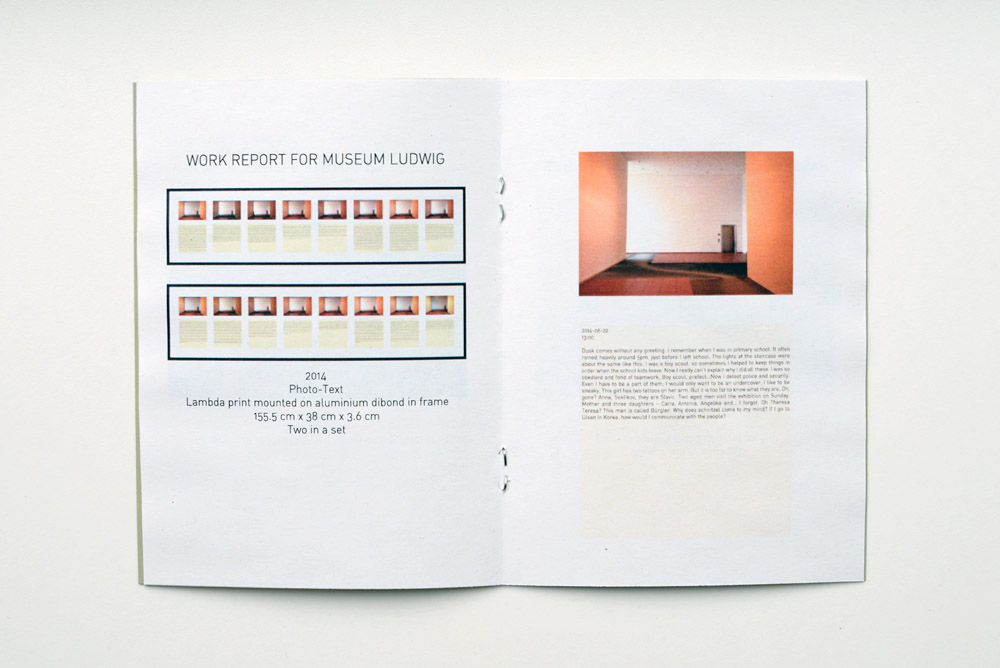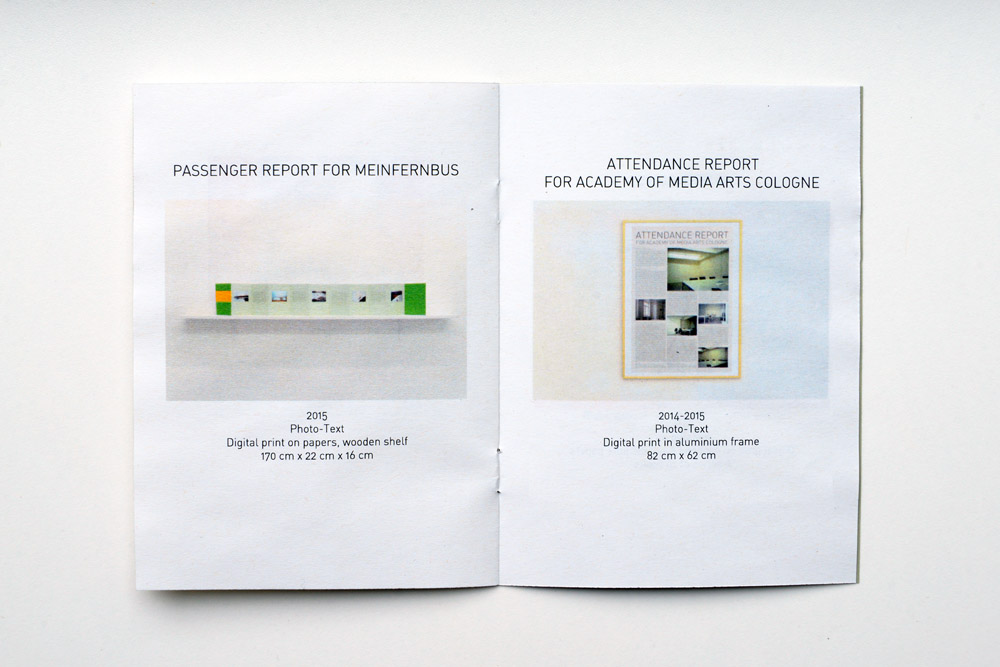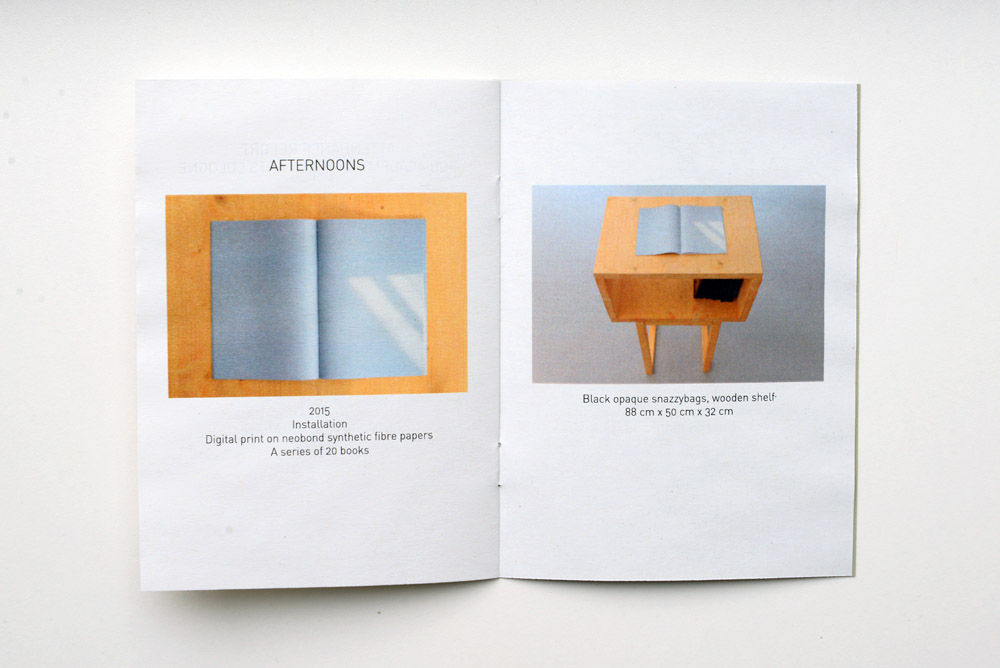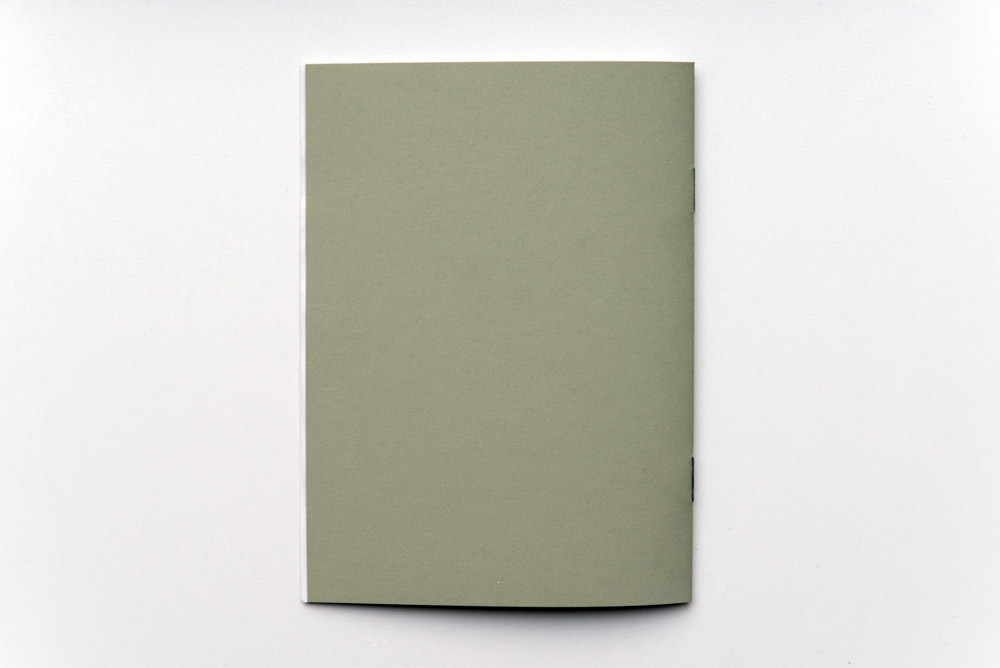Flat D, 6/F, Aldrich Garden’ is the title of this exhibition but also the artist’s home address. This implies a doubleness: an address is functional and indicative – as a concept, it is most commonly understandable – but at the same time it is also meaningless because it is not meant to help you to find the place, as for the audience of this exhibition it refers to a place so far away that it may as well not exist. Such a conceptual doubleness epitomizes Silas Fong’s artistic project in temporal experiences and psychological activities – things that are utterly personal, yet also entirely common.
The address is also giving us hints with which to understand the exhibition: first of all, it brings us to Hong Kong. A global financial center built first by manufacturing industries (the predecessor of ‘the world’s factory’), then by financial-trading freedoms, the city likes to evaluate its business and its people in terms of productivity and efficiency. In this society of pragmatism, wasting time is no different to burning billnotes. Growing up here, people pick up an almost ethical obligation to spend time in the ‘correct way’, and for the younger generation to not do so is a major rebellion. With this context in mind, Fong’s works are actually a research on sheer unproductivity, on the moments that we learn to feel guilty and negative about. He questions if these moments really are worthless and whether our personal histories are not in fact constituted within all these ‘ahistorical times’.
The address also brings us to Flat D, a piece that was first shown in the Hong Kong Art Centre in 2015. There, Fong had taken corner of the exhibition space and reconstructed it into his bedroom at home. He then invited visitors to spend ten minutes in this room. With the time set to precisely 10 minutes, and the fact that there was not anything at all in the room to look at or contemplate, visitors could do nothing but go with whatever came up their minds. Coming inside Flat D, their plans, their experiences of the day were interrupted, though voluntarily, and now they had to stop and think about the interrupted. Eventually, the piece provided an experience and a question: what does this interruption, these ten minutes that are cut out of our life, mean to us?
Three other pieces within the exhibition (Work Report for Museum Ludwig, Attendance Report for Academy of Media Arts Cologne and Passenger Report for Meinfernbus) can be seen as elements of ‘fieldworks’ relating to such research – with pictures and texts, he documents the activities of his mind during long hours undertaking internship duties in a museum, attending classes and taking long bus rides. These records may remind us of the typical texts of ‘stream of consciousness’, in particular Camus’s Outsider, but literariness is not Fong’s main concern here. What he tries to explore is the common rather than the unique – he wants these records to remind us of our own experiences. Think about it, we all talk to ourselves during moments of boredom and distraction, when in our minds words start to flow randomly, unbounded from social norms (manners, ethics, and so on) and a chain of memories appears, no matter how irrelevant they are to the things immediately surrounding us. Using the artist’s own experiences as case studies, these pieces ask us to pay attention to these conversations we have with ourselves.
Even two years ago, Fong was already a considerably experienced artist. Coming to ‘study’ in Germany, what is the most precious to him is perhaps not the new information to even methodologies, but the unfamiliar environment, a sense of distance and indifference that provokes thoughts and experiences. For as we can tell from these works, the core theme of Fong’s practice is an inevitable loneliness, and art is a tool to process and transcend it and make us understand ourselves better. In this sense, we may see the last work in this exhibition as a beautiful metaphor – Afternoons (2015) is a series of books, but books with no words, no knowledge, no ‘history’ – just the sunlight that changes as time goes by. It symbolizes what Fong attempts to create with art: a sensitivity to the subtleties of our time and our mind.
‘Flat D, 6/F, Aldrich Garden’ is a text written for the exhibition with the same title.

